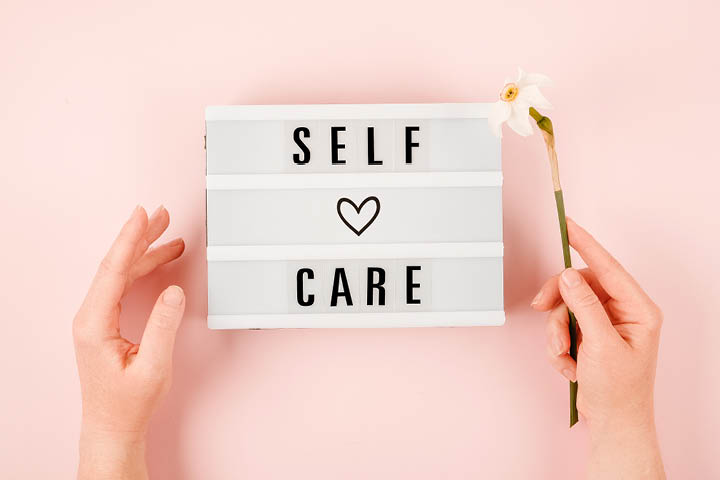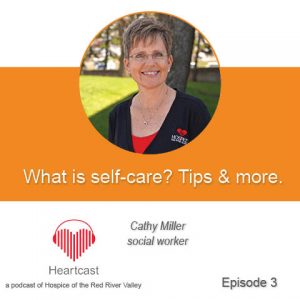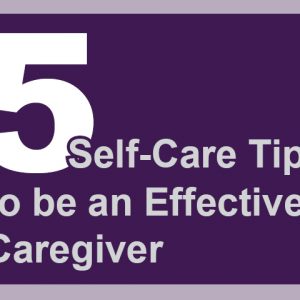 by Kriston Wenzel, LBSW, CT
by Kriston Wenzel, LBSW, CT
“When you discover something that nourishes your soul and brings you joy, care enough about yourself to make room for it in your life.” – Jean Bolen
Self-care describes anything you do to keep yourself healthy. It’s a broad term that covers many aspects of a person’s life, including physical, mental, emotional, spiritual and social well-being.
Good self-care habits help manage our mood, outlook and overall health. Our own self-care habits also influence how we interact with other people every day. If we are not taking care of ourselves, it can be difficult to offer compassion, grace and patience to others.
Self-care is viewed differently by every person. What fills your bucket and makes you feel healthy is different from the next person’s needs. This is also something that can change and evolve throughout the seasons in your life.
It becomes especially important to find ways to take care of yourself during challenging times in life, including when you’re caregiving or experiencing grief. It might feel selfish and overwhelming to set time aside for yourself, but it’s essential to find intentional ways to recharge.

Our society also prioritizes constant productivity—if we’re not being productive, we may feel like we’re failing or not good enough. This is not the case. It takes energy to give yourself the energy you need to keep moving forward.
Time spent on self-care is an investment in yourself and your well-being.
So, how can you develop a beneficial self-care routine?
You can start building self-care habits by first reflecting on what’s important to you and asking yourself a few questions. Evaluating these questions and your responses to them can help bring clarity to what you need the most right now—and in the future.
Take a few minutes to write down your thoughts to the following questions. Your answers may reveal a recurring theme and a good place to focus your self-care routine.
- What brings you enjoyment? Do you take time to do this?
- What motivates you?
- What makes you feel renewed?
- What areas of your life are you able to make changes, even if they’re small?
- Do you feel comfortable asking for what you need?
Perhaps you are in the throes of caregiving and implementing more than a few minutes to yourself every day is not possible. Your self-care list can include realistic things you can do now and also things you’d like to start later.
Self-care Tips
- Be kind to yourself and allow grace – Know that you are doing your best and you are capable of taking small steps to improve your self-care. Practice positive self-talk. Ask yourself – Would you speak to a friend the same way your inner dialog has been talking to you?
- Journaling – Writing down your feelings allows you to get the thoughts out of your head. Just start writing—paragraphs, lists, words, anything. It doesn’t have to make sense to anyone else but you. This is a safe place for you to release and share. Journaling also gives your mind the sense it’s been listened to.
- Mindfulness/meditation – Calming your mind through meditation and mindfulness are great tools for intentionally holding space for yourself. A few minutes at the start of every day can have a lasting impact on your outlook. There are many apps that offer a guided experiences for different types of challenges you may face: sleeplessness, anxiety, etc.
- Sleep – Make sure you’re getting enough rest. When you wake up in the morning, do you feel rested or still tired? The level of sleep you need is different than someone else’s. Find a sleep routine that works for your life right now. If you can’t sleep for long periods of time at night, allow yourself naps during the day. Establish a sleep routine that works for you.
- Exercise – Find an activity you enjoy that gets your body moving. Walking, yoga, gardening and more help you maintain a healthy body weight while also improving your mood. It may take a little extra mental energy to get going, but you will feel great after you’ve been moving around.
- Ask for what you need/support – You may need additional support in your current situation. Research and reach out to local resources to help navigate your situation.
Self-care is personal. Find what works for you and make time to prioritize your needs. It may take some digging to remember the things that brought you joy, but they are inside of you. The better you care for yourself, the better you can offer support to others in your life.
Click to download and print this article.
Kriston Wenzel, LBSW, CT, is a grief specialist at Hospice of the Red River Valley. What she enjoys most about her work is having the chance to help individuals and families find their strength and resiliency during such a difficult time in their lives.
About Hospice of the Red River Valley
In 1981, Hospice of the Red River Valley was founded on the belief that everyone deserves access to high-quality end-of-life care. We fulfill our nonprofit mission by providing medical, emotional, personal and spiritual care, as well as grief support to our patients, their families and caregivers during a tender time in life. Our staff helps those we serve experience more meaningful moments through exceptional hospice care, 24 hours a day, 365 days a year, wherever a patient calls home. The organization serves more than 40,000 square miles in North Dakota and Minnesota, including in and around Bismarck, Detroit Lakes, Devils Lake, Fargo, Fergus Falls, Grand Forks, Lisbon, Thief River Falls, Valley City and many more communities. Hospice of the Red River Valley offers round-the-clock availability via phone, prompt response times and same-day admissions, including evenings, weekends and holidays. Contact us anytime at 800-237-4629 or hrrv.org.




